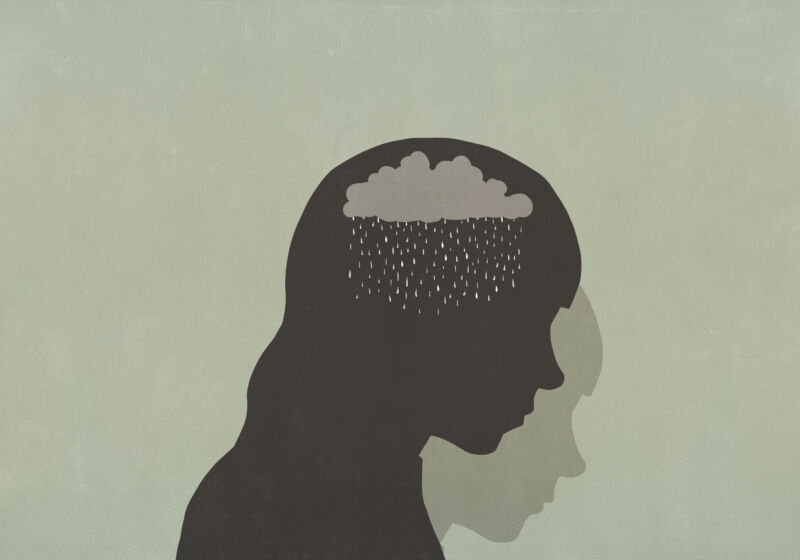
US researchers have successfully relieved a patient’s severe, long-term depression with an electronic implant that acts like a neural pacemaker, resetting the brain circuits associated with negative feelings.
The team at the University of California, San Francisco (UCSF) said the study was “a landmark success” in the scientific effort to treat psychiatric disorders through carefully targeted neural electronics. The study is published in the Nature Medicine journal.
“We’ve developed a precision medicine approach that has successfully managed our patient’s treatment-resistant depression by identifying and modulating the circuit in her brain that’s uniquely associated with her symptoms,” said Andrew Krystal, UCSF professor of psychiatry.
At a press teleconference ahead of the study’s publication, the 36-year-old patient, who asked just to be called Sarah, said the implant had transformed her life after five years of intense depression that would not respond to any drug combination or electroconvulsive therapy. “I felt tortured by suicidal thoughts every day,” she said. “I was at the end of the line.”
Almost immediately after being inserted deep into her brain, the device provided relief, which has so far lasted for a year. When it detects neural activity associated with irrational thoughts, which previously triggered depressive obsessions, its electrodes deliver a short, corrective electric pulse and “poof... the cycle stops,” as Sarah put it.
Deep brain stimulation (DBS) has recently become a routine treatment for epilepsy and Parkinson’s disease but has had limited success against depression, which affects 280 million people globally, according to the World Health Organization. As many as 30 percent of depressed patients do not respond well to existing treatments.
The problem with applying neuro-electronics to depression had been that scientists knew relatively little about the brain circuits associated with the condition. The UCSF team’s key discovery was a “biomarker” indicating the onset of depressive symptoms, a specific pattern of neural activity in the part of the brain called the amygdala that deals with responses to threats.
The DBS device used in the study was adapted from one used to treat epilepsy. When it detects the biomarker in the amygdala, it sends tiny electric pulses to another area, the ventral striatum, which is part of the brain’s reward and pleasure system. This immediately lifts the unwanted mood symptoms.
Sameer Sheth, a neurosurgeon at Baylor College of Medicine in Houston who was not involved in the UCSF research, is carrying out another trial of personalized implants to treat depression and is about to publish positive results. He said the two projects indicated a trend in research toward developing “a more individualized approach to psychiatric treatments,” based on stimulating specific brain circuits.
Although the approach was promising, Sarah was the first patient in the first published trial, UCSF assistant professor of psychiatry Katherine Scangos cautioned. Scangos has enrolled two more people with severe depression to take part in the research and aims for 12 patients altogether.
“We need to look at how these circuits vary across patients and repeat this work multiple times,” she said, “and we need to see whether an individual’s biomarker or brain circuit changes over time as the treatment continues.”
Attaching an implant under the skull with electrodes extending deep into the brain is an expensive, invasive, and potentially risky procedure. Once details of the brain circuits underlying depression are better understood, “we hope to find non-invasive biomarkers that can be used with non-invasive treatments,” Scangos said.
© 2021 The Financial Times Ltd. All rights reserved Not to be redistributed, copied, or modified in any way.
"severe" - Google News
October 05, 2021 at 11:18PM
https://ift.tt/3acDTB3
Brain implant relieves patient’s severe depression in “landmark” US study - Ars Technica
"severe" - Google News
https://ift.tt/2OrY17E
Shoes Man Tutorial
Pos News Update
Meme Update
Korean Entertainment News
Japan News Update
Bagikan Berita Ini















0 Response to "Brain implant relieves patient’s severe depression in “landmark” US study - Ars Technica"
Post a Comment